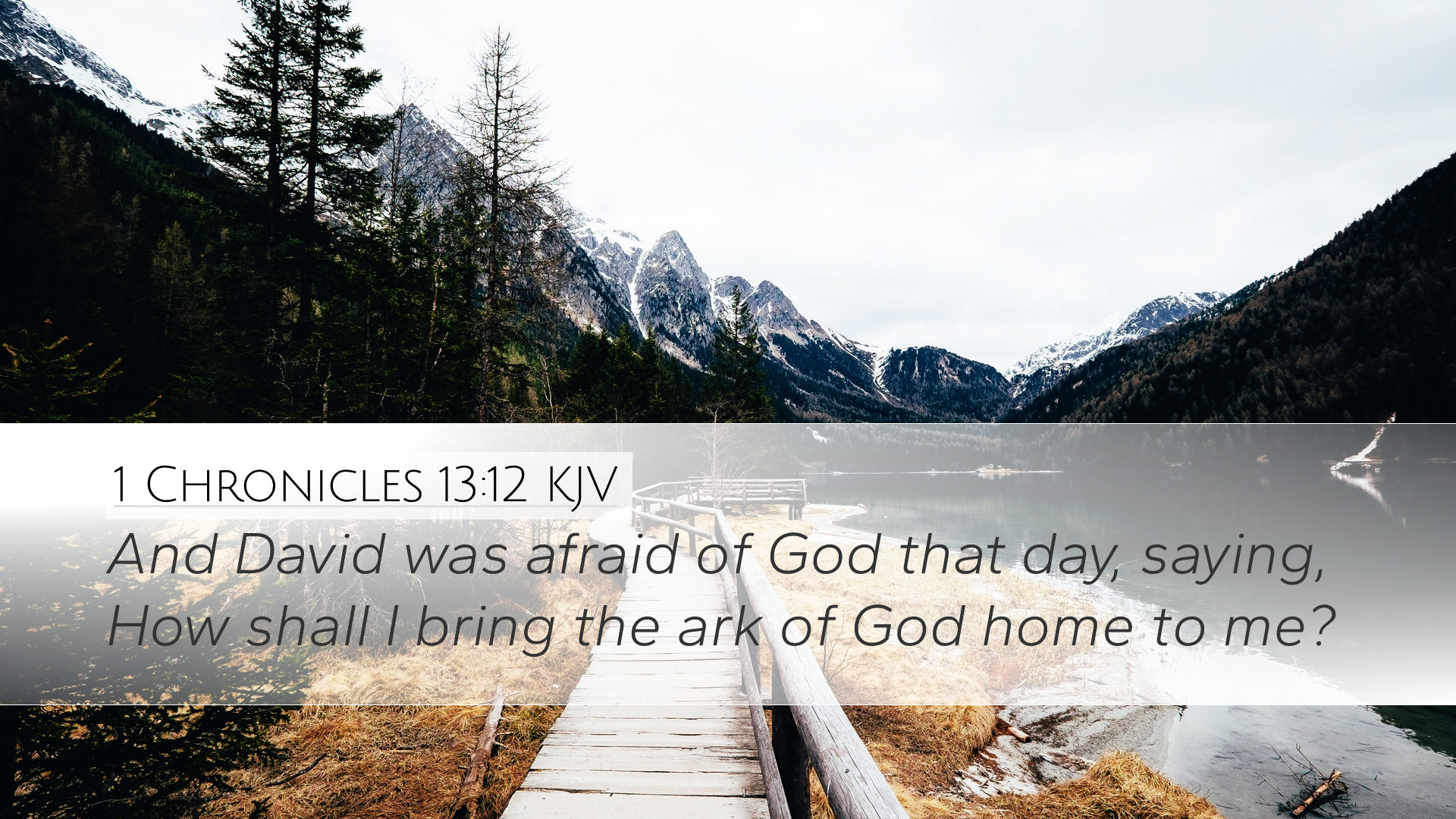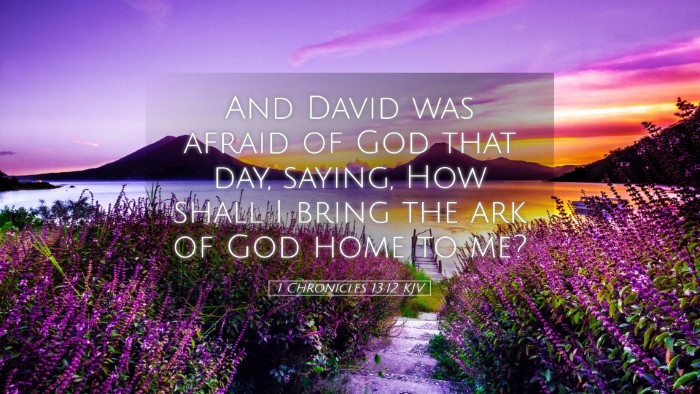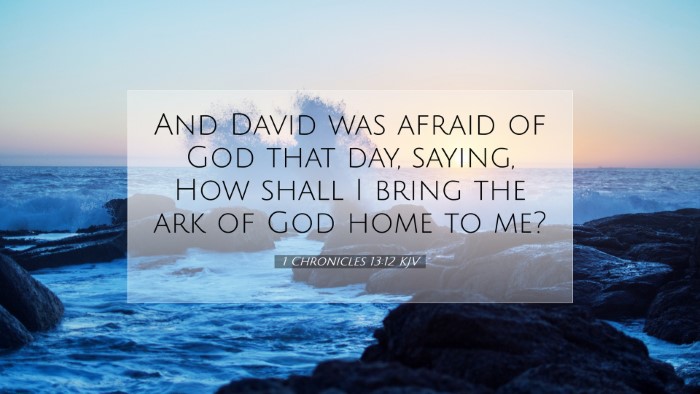Commentary on 1 Chronicles 13:12
Verse Overview: 1 Chronicles 13:12 states, "And David was afraid of God that day, saying, How shall I bring the ark of God home to me?" This verse captures a pivotal moment in David's reign, reflecting his deep concern over the proper handling of the Ark of the Covenant.
Contextual Background
The Ark of the Covenant, a symbol of God's presence among His people, had been missing from Israel for years. David's desire to bring it to Jerusalem marked a significant step in his kingship. However, the events surrounding its transportation revealed the importance of approaching God with reverence and obedience.
Commentary Insights
Matthew Henry Commentary
Henry emphasizes the gravity of the situation, noting that David’s fear stemmed from a sudden awareness of God's holiness and the serious consequences of mishandling sacred objects. He highlights the following points:
- Fear of God: David's fear was not merely dread but a profound respect for God's majesty. This awareness should inspire believers today to approach God with humility.
- Consequences of Irreverence: The incident involving Uzzah, who died for steadying the Ark, illustrates that God’s holiness cannot be compromised. It serves as a warning against casual attitudes towards holy things.
- Seeking God's Guidance: David's response reflects a shift from unwarranted confidence to a recognition of his need for divine direction in governing God's people.
Albert Barnes Commentary
Barnes provides a theological analysis of the fear that overcame David, reflecting on the implications for leadership in sacred matters:
- The Character of God: He underscores the nature of God as both loving and just, which causes leaders to tread carefully when dealing with holy matters.
- Importance of Obedience: Barnes stresses that David's fear was a result of understanding the levitical laws regarding the Ark, which he initially sought to disregard. His newfound fear led to an urgent need to consult the scriptures for proper guidance.
- Leadership Trials: Barnes notes that leaders may face unexpected trials that reveal their hearts and their understanding of God's will. David's fear became a pivotal moment for spiritual maturity.
Adam Clarke Commentary
Clarke offers a detailed examination of the historical and cultural ramifications of David's fear:
- Historical Context: He notes that the Ark had been treated casually during its period of disuse, which likely contributed to David's fear upon realizing the significance of its role in Israel's worship and relationship with God.
- Theological Implications: Clarke argues that David’s apprehension serves as a reminder of the serious consequences of failing to honor God appropriately. The Ark represented God's presence, and mishandling it was not merely an oversight; it had spiritual ramifications.
- Call for Reform: Ultimately, Clarke suggests that this moment led to a necessary reform in Israel’s worship practices, leading David to reschedule the Ark’s return with the proper reverence it deserved.
Application for Modern Believers
This verse and the surrounding commentary offer vital lessons for today’s believers, particularly in understanding the nature of God’s holiness and the seriousness of worship:
- Reverence in Worship: Just as David learned, contemporary worship must be approached with a heart of reverence and understanding of God’s holiness.
- Importance of Scripture: As seen in the reflections of both Henry and Barnes, believers are reminded to seek the counsel of Scripture in all matters, especially in worship and leadership roles.
- Leadership Responsibility: Leaders in the church today are called to be diligent and responsible in their role, ensuring that they guide their communities in a manner that honors God.
Conclusion
1 Chronicles 13:12 serves as a profound reminder of the importance of reverence, obedience, and the necessity of aligning our practices with God’s holiness. The fear that David experienced was not a paralyzing dread but an awakening to the majesty of the God he served. For pastors, theologians, and congregants alike, this verse challenges us to maintain a respectful and informed approach to our worship and relationship with God.


